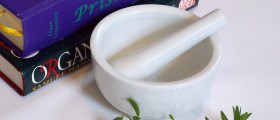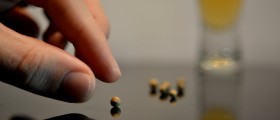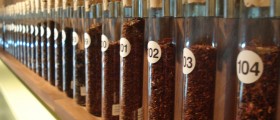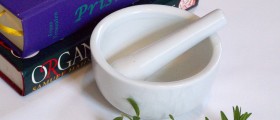
Homeopathic remedies do operate on a principle similar to allergy shots for allergies (without the chemical stabilizers and additives), but homeopathy is more about treating the whole person. Different diseases cause the same pattern of symptoms needing the same remedy, but different remedies may treat different people with the same disease.
The first thing women need to know to choose the right remedy is to understand the patterns of symptoms treated by the various remedies. For instance: Lachesis is used when circulation is deficient or excessive, when the primary symptoms are heavy periods or no periods at all, or when the woman who has PCOS has a problem either with blushing and flushing or cold hands and feet. Lycopodium is used to treat people who experience acne, eczema, bloating, constipation, nausea, vomiting, anxiety, and insomnia, regardless of the medical label given to their health conditions. Nat. mur. is used to treat a combination of skin blemishes, yeast infections, and premenstrual tension.
Sepia is used when there is vaginal dryness, vaginal tension, or yeast infections. The theory of homeopathy is that the more a substance is diluted, the more powerful the remedy will be. The number of dilutions is indicated by a numeral and the letter C, such as 3C, 6C, and 12C. The 3C remedy is weaker than the 6C remedy, the 6C remedy is weaker than the 12C remedy, and so on. It's best to start with a weaker strength and increase the strength once symptoms begin to improve. The proof of how well homeopathy is working is the way you feel after two or three months. The symptoms of PCOS can vary from day to day, but the right homeopathic remedy can help you find relief for weeks and months without interruption. And with the right PCOS diet and fertility foods, you can get even better results.

















Your thoughts on this
Loading...